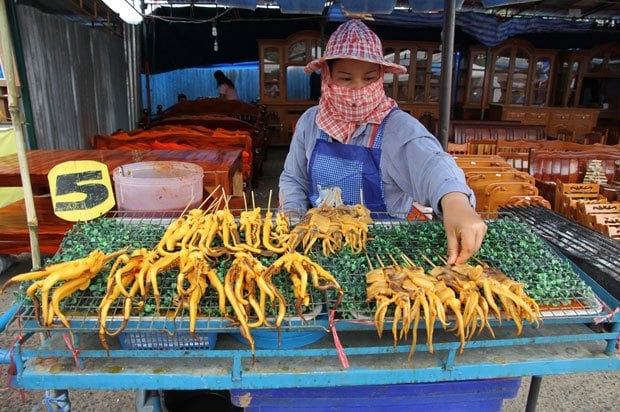Food poisoning

The Mix explains what a caution is and how police cautions and warnings work in the UK.
Do you know how to avoid food poisoning for yourself and your housemates? How do you get food poisoning? Can you get food poisoning from baked beans? Follow our guide on good kitchen hygiene to find out.
No one wants to admit to giving their flatmate the squits, so here are some simple tips to prevent anyone getting explosive diarrhoea through bad kitchen hygiene, and to avoid having to pull a sickie.
How to avoid getting food poisoning from meat
Meat is perhaps the most famous culprit behind bouts of food poisoning. Follow these simple tips to make sure it doesn’t happen to you.
- Store it on the bottom shelf of the fridge so it doesn’t drip onto other foodstuffs.
- Keep cooked meat away from raw meat.
- If you’re going to freeze it, do it before the sell-by date.
- When you defrost it, shove a plate underneath, as lots of bacteria-laden juices will ooze out.
- Cook it all the way through before eating. Especially chicken, as there’s a high risk of salmonella.
How to avoid getting food poisoning from the fridge
Yep, you can get food poisoning from the fridge if you’re not careful about what you put in there and how you do it.
- Never put open cans of food in the fridge as the metal can get into the food. Use storage containers for canned goods instead. You can even get food poisoning from basics like baked beans if you put the can in the fridge.
- Store eggs in their boxes – even if you have an egg rack.
- Make sure leftovers have cooled down before you put them in the fridge so you don’t raise the inside temperature.
- Speaking of which, fridges need to be at least 5 degrees celsius or below.
- Clean your fridge regularly and remember to chuck out all the mouldy stuff.
For an extra layer of assurance, individuals can incorporate modern food safety practices, such as using food testing kits. These kits empower consumers to assess the safety of their food by detecting contaminants or pathogens that may not be apparent through visual inspection alone. By integrating such tools into routine food safety practices, individuals can take a proactive stance in safeguarding their health and preventing the occurrence of foodborne illnesses.
How to avoid food poisoning
Finally, a few general hygiene precautions you can take to avoid food poisoning.
- Wash your hands, worktops and dishcloths regularly.
- Use a separate chopping board for meat.
- Don’t wash raw meat (especially chicken and turkey), it just spreads germs.
- Eat leftovers within two days, and when you reheat them make sure they’re steaming hot all the way through.
Of course, you can take all the precautions you like against food poisoning, but if your housemates won’t clean up after themselves that’s another matter. Read our tips for how to get housemates to clean here.
Got any food poisoning stories you’d like to share? Let us know on our discussion boards.
Next Steps
- Chat about this subject on our Discussion Boards.
By Holly Bourne
Updated on 19-Oct-2022
Photo by Shutterstock.
No featured article










